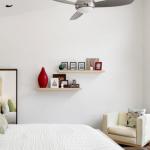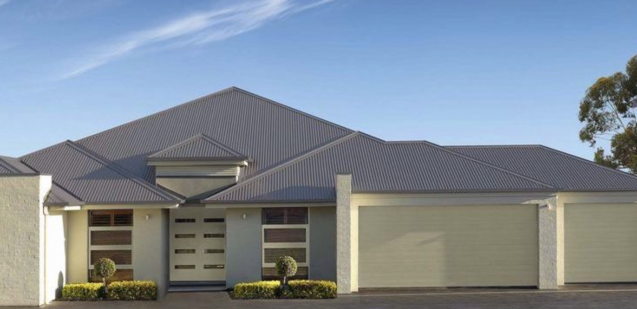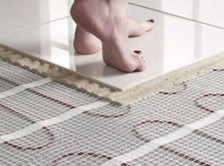
Hot Tips for Cooling Your Home
By HOUSPECT Building and Pest Inspections|October 25, 2018
Are you sick of feeling the heat when you know the only solution is to throw money at your ever- increasing air-con? A ceiling cavity can reach 70 degrees or more on a really hot day, which means all that heat is trapped inside your home. There are other design or structural elements which are also heat traps, so it’s time to start thinking about effective cooling methods.
Sustainable Construction
Your home may be its own worst enemy when it comes to letting in and then trapping heat. One of the first things you should consider is external window coverings to help combat those scorching summer days. All that heat that would normally come in through your windows unchallenged can be kept out with window coverings, significantly cooling the inside temperature.
One way of keeping the heat out without costing you a fortune, is to keep your windows and doors closed in summer. You can also install external window coverings. One area to consider is whether your awnings are providing sufficient shade from the sun. As an alternative, roller shutters or shade sails can prevent much of the direct sunlight from entering through windows.
If you are on a budget, shade cloth is an inexpensive and simple application for covering windows from the outside. It is important to note that internal curtains or shades will not provide the same level of protection. You can affix shade cloth to your window frames and remove it when the temperatures begin to cool again.
Cooling Renovation Solutions
Some windows are simply over exposed to sunlight due to poor design elements. In such cases, adding additional awnings to reduce direct sunlight is an option which may save you money in the long-term. Ceiling and roof insulation is one of the most effective ways to control how much heat is retained in your home.
You live in Australia, so you are probably aware that heat waves are a common occurrence; Are you prepared? Is your ceiling properly insulated to keep out heat? You can check this by conducting a touch test next time there is a heat wave. If you touch your ceiling and it feels considerably warmer, you need to improve your insulation.
Drafts are another issue to correct in order to prevent excess heating getting into your home. Make sure all drafts around windows, doors, floorboards and even unused wall vents are sealed to keep the heat out. There are few instances where these drafts will require major work but if there are large gaps around window or door frames you might have to call in a builder.
Air Conditioning
If you do not have air conditioning and installing a system is either not practical or affordable, ceiling and standing fans are a good alternative. Contrary to common myths, unlike air conditioning, running ceiling or standing fans will not blow up your electricity bill. Staying cool with fans on extremely hot days, does sometimes require a little innovation through the use of a water spray bottle to keep your skin cool. This creates an evaporation cooling effect which will get you through a hot summer’s day in a pinch.
If you have the budget for it, hiring a builder who understands passive design elements in home construction and renovation is a worthwhile investment. You can make effective changes in and around your home to combat heat, such as added insulation, shading and effective air conditioning.
Sustainable Construction
Your home may be its own worst enemy when it comes to letting in and then trapping heat. One of the first things you should consider is external window coverings to help combat those scorching summer days. All that heat that would normally come in through your windows unchallenged can be kept out with window coverings, significantly cooling the inside temperature.
One way of keeping the heat out without costing you a fortune, is to keep your windows and doors closed in summer. You can also install external window coverings. One area to consider is whether your awnings are providing sufficient shade from the sun. As an alternative, roller shutters or shade sails can prevent much of the direct sunlight from entering through windows.
If you are on a budget, shade cloth is an inexpensive and simple application for covering windows from the outside. It is important to note that internal curtains or shades will not provide the same level of protection. You can affix shade cloth to your window frames and remove it when the temperatures begin to cool again.
Cooling Renovation Solutions
Some windows are simply over exposed to sunlight due to poor design elements. In such cases, adding additional awnings to reduce direct sunlight is an option which may save you money in the long-term. Ceiling and roof insulation is one of the most effective ways to control how much heat is retained in your home.
You live in Australia, so you are probably aware that heat waves are a common occurrence; Are you prepared? Is your ceiling properly insulated to keep out heat? You can check this by conducting a touch test next time there is a heat wave. If you touch your ceiling and it feels considerably warmer, you need to improve your insulation.
Drafts are another issue to correct in order to prevent excess heating getting into your home. Make sure all drafts around windows, doors, floorboards and even unused wall vents are sealed to keep the heat out. There are few instances where these drafts will require major work but if there are large gaps around window or door frames you might have to call in a builder.
Air Conditioning
If you do not have air conditioning and installing a system is either not practical or affordable, ceiling and standing fans are a good alternative. Contrary to common myths, unlike air conditioning, running ceiling or standing fans will not blow up your electricity bill. Staying cool with fans on extremely hot days, does sometimes require a little innovation through the use of a water spray bottle to keep your skin cool. This creates an evaporation cooling effect which will get you through a hot summer’s day in a pinch.
If you have the budget for it, hiring a builder who understands passive design elements in home construction and renovation is a worthwhile investment. You can make effective changes in and around your home to combat heat, such as added insulation, shading and effective air conditioning.



